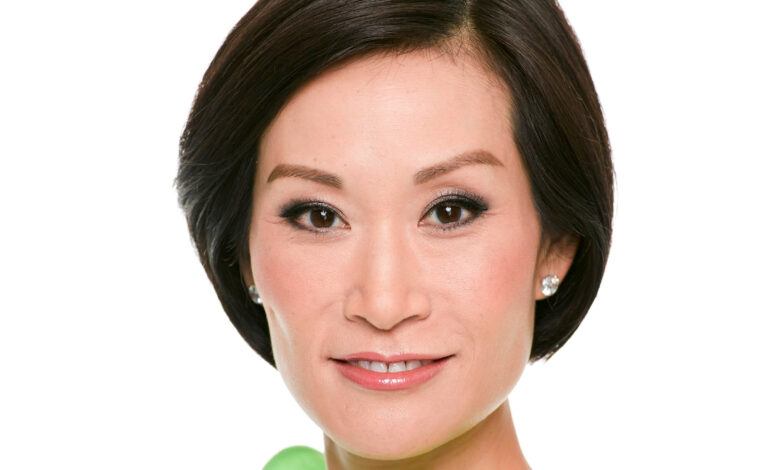Citi aims to unlock potential of managing wealth for women

A key goal for Ida Liu, global head of Citi Private Bank, is developing deeper relationships with female clients, but this can prove challenging for results-driven advisers.
Financial wellness is a key component of personal happiness, yet is frequently overlooked, particularly among ultra-high net worth individuals (UHNWIs). Contrary to popular belief, substantial wealth does not guarantee financial security, explains Ida Liu, global head of Citi Private Bank.
Financial ‘unwellness’ among UHNWIs stems from many of the same causes as for the broader population but is magnified by the scale of their wealth and complexities it introduces. These factors include excessive spending, mismatched cash flows, poorly diversified investment portfolios and excessive debt.
For the ultra-wealthy, additional challenges arise from insufficient wealth planning, unprepared successors, and psychological stress of preserving a legacy. Without effective strategies to address these issues, wealth can rapidly diminish, sometimes within a single generation. This concern is heightened by the so-called “third-generation curse”, where inherited wealth often dissipates within three generations.
Effective management requires time, expertise, and resources – luxuries busy entrepreneurs and professionals often lack.
Women, in particular, face unique challenges in this space, compounded by the financial sector’s historically male-centric approach. Yet, they are now leading a wealth revolution.
Women currently hold a third of global wealth, a share set to rise as they increasingly create, inherit, and manage substantial assets.
By 2030, women will own more than half of the world’s wealth, according to consultancy McKinsey. Adding momentum to this shift is an unprecedented intergenerational wealth transfer. Market intelligence firm Cerulli forecasts $124tn in wealth will pass between generations by 2048, with $40tn set to transfer to widowed women from the baby boomer and older generations, before moving on to heirs and charities.
This transition presents both a critical need and significant opportunity for wealth management providers to engage and support female clients effectively.
Four pillars
Citi Private Bank advocates a financial wellness framework based on four pillars: financial literacy, building a core investment portfolio, strategic borrowing and wealth planning.
The goal is to “empower” women to make informed, confident decisions about their wealth, says Ms Liu, enabling them to create meaningful impact for their families, businesses and society.
Men are more than twice as likely to exhibit very high levels of financial literacy
Respondents showing very high financial literacy (US)
Men – 23%
Women – 9%
Source: TIAA Institute-GFLEC Personal Financial Index (2024)
Financial literacy is key, yet a persistent gender gap continues to hinder progress. “We view women as a massive growth opportunity, one of the fastest-expanding segments in wealth management. To succeed, we must invest time in educating, resonating with, and building trust with female clients, to create long-term value and relationships,” says Ms Liu.
Under Jane Fraser’s leadership as the first female CEO of a major Wall Street bank, and with Ms Liu guiding a gender-balanced workforce, the number of female clients globally has doubled in the past three and a half years, since Ms Liu became global head. Women now account for 20 per cent of the bank’s global clientele.
Initiatives like the ‘Women in Wealth’ programme, relaunched in 2021 in conjunction with Citi Latitude, the bank’s next gen and millennial platform, has been central to this progress, offering tailored advice, educational seminars and global networking opportunities.
These initiatives include partnerships with leading institutions, such as a recent seminar with the Massachusetts Institute of Technology on impact of disruptive technologies. “Women-only gatherings provide a safe environment where participants can candidly discuss challenges, share best practices and build supportive networks with like-minded peers,” says Ms Liu.
Many attendees are navigating new responsibilities, such as managing inherited wealth and seek guidance on how to build their financial knowledge, she explains.
“Many women sit disproportionately in cash due to a lack of knowledge about global investments,” she says. “Many tend to be more risk-averse, and don’t tend to leverage as much as their male counterparts. We aim to help them unlock their full potential.”
By understanding portfolio diversification, liquidity management and strategic leverage, she says they can build resilience and long-term wealth.
But women and next generation clients are already reshaping investment behaviours, with a strong focus on purpose-driven strategies and impact investing. “Women, in particular, care deeply about directing their wealth toward meaningful causes,” explains Ms Liu. “We often see them building portfolios that reflect their views on issues such as gender equity, environmental sustainability, and other areas of personal significance,” she says, highlighting how purpose-driven investments not only grow wealth but drive global change.
Under pressure
Yet, despite their growing economic influence, women are often overlooked in wealth management. Critics suggest this is partly due to the intense pressure bankers face to meet sales and performance targets, which skew priorities toward quick wins. Women, often regarded as more risk-aware, are thought to require greater patience and time to engage, qualities that may clash with short-term goals.
Citi Private Bank’s Ms Liu challenges this narrative. Operating under a base salary plus bonus structure, rather than a commission-based model, allows bankers to prioritise clients’ best interests. “Our private bankers are incentivised to prioritise to always do the right thing for clients,” she claims.
Key components of wellbeing
Financial wellness is one of key seven factors that contribute to overall wellbeing, each having important intersections with the others:
- Environmental: having pleasant, healthy surroundings
- Social: relationships and social connections
- Physical: good health and fitness
- Emotional: ability to react positively amid adversity
- Vocational: fulfilling work and healthy working environment
- Intellectual: stimulating pursuits
- Financial: evidence-based peace of mind that needs can be met
Source: Citi Private Bank
For women, as for all client segments, legacy remains a top priority, often extending beyond financial assets to encompass values, impact, and sustainability. “Understanding family dynamics and the psychology of wealth are incredibly important in helping families navigate legacy and business succession planning,” says Ms Liu, who brings expertise in both economics and psychology to her leadership.
“Our mission is to become the number one private bank for families, not just individual clients, to build a sustainable business for multiple generations ahead,” she explains.
Private bankers are “phenomenal listeners”, and understand clients’ unique goals and challenges, asking questions to guide them toward tailored solutions. While they are not trained psychologists, they often assist families in navigating complex dynamics, referring clients to external specialists if needed.
Increasingly, wealthy families engage business and family psychologists during meetings, a common practice globally, to ensure that “all voices are heard”, and differing perspectives are aligned, notes Ms Liu.
The role of a private banker is multifaceted, but it does not require mastering everything. Instead, private bankers serve as the “quarterback” of the wealth management process, connecting clients to a global network of specialised experts.
These include investment ‘counsellors’, lending partners and dedicated teams for wealth planning, philanthropy and cross-border issues. By coordinating these services, private bankers deliver a “holistic approach” bringing all services together, concludes Ms Liu.
Personal brand
The male-dominated nature of financial services is a significant factor contributing to the low engagement of women clients. Despite their natural aptitude for planning and the flexibility the field offers, women account for just 15 per cent of financial advisers, according to McKinsey.
While women may or may not specifically seek out female advisers, it is vital to avoid tokenism, such as featuring only women, or men, in marketing materials, says April Rudin, founder and CEO of New York-based financial services marketing consultancy The Rudin Group. Instead, communication should address deeper reasons behind client preferences for advisers, regardless of gender.
These include “comfort and trust” between women advisers and women clients; “empathy and communication”; and “understanding unique financial needs”, as women face distinct financial considerations, including longevity, legacy planning, parenting and navigating career paths, says Ms Rudin.
Women increasingly value relationship-driven, service-oriented wealth management models.
Marketing communications that emphasise holistic planning resonate well, provided they steer clear of being “packaged up with a pink bow” as women are not a homogenous group, believes Ms Rudin.
In today’s market, emphasising personal brands of leaders in private banking and wealth management is crucial, she adds. Many clients, including women, seek relationships with individuals they feel a personal connection to, rather than relying solely on the reputation of a large institution.
One of the most underrated tactics for private banks looking to engage women clients is fostering communities and sub-communities among clients, prospects and even their internal teams, says Ms Rudin. By creating spaces for women to share challenges and affinities, banks can strengthen connections and cultivate loyalty.
Moreover, creating opportunities for women to connect meaningfully should be the focus of any marketing and communications strategy. These initiatives offer not only an opportunity to build relationships but also a chance for private banks to actively listen to their communities, allowing them to understand client needs and preferences.
“This approach will create more and stickier client relationships with women than any sort of financial advice or investment returns,” concludes Ms Rudin.
Unique relationship
Private banking is undergoing a transformation, driven by the great wealth transfer and an evolving recognition of its increasingly diverse clientele, and women are at the heart of this shift, believes Anant Deboor, head of strategy, at strategy consulting firm VML in Hong Kong.
But engaging women clients goes beyond education and building confidence, he says.
It requires a deeper understanding of their unique relationship with wealth. Women often view wealth as part of a broader narrative, where financial milestones are not merely achievements but serve as markers of security, legacy, and personal growth.
Pillars of financial wellness for UHNWs
- Financial literacy
- Long-term investing
- Strategic borrowing
- Comprehensive wealth planning
Source: Citi Private Bank
Wealth managers must adapt their strategies to reflect these nuanced perspectives, acknowledging that women’s financial journeys often diverge from traditional planning frameworks designed with men in mind, he says.
Traditional wealth-planning assumes income will increase steadily year after year. But women are more likely to experience career breaks for caregiving. They also retire earlier, live longer, and face higher medical expenses. These realities can render standard wealth and retirement planning “ill-suited” for the average woman, according to consulting firm Oliver Wyman.
“Private banks will need to recognise the very fundamental differences in how women view and experience life, life stages, wealth creation and the evolving meanings of wealth through those stages,” states Mr Deboor. “To resonate with them, they will need to be far more insightful and sensitive.”
Source link




